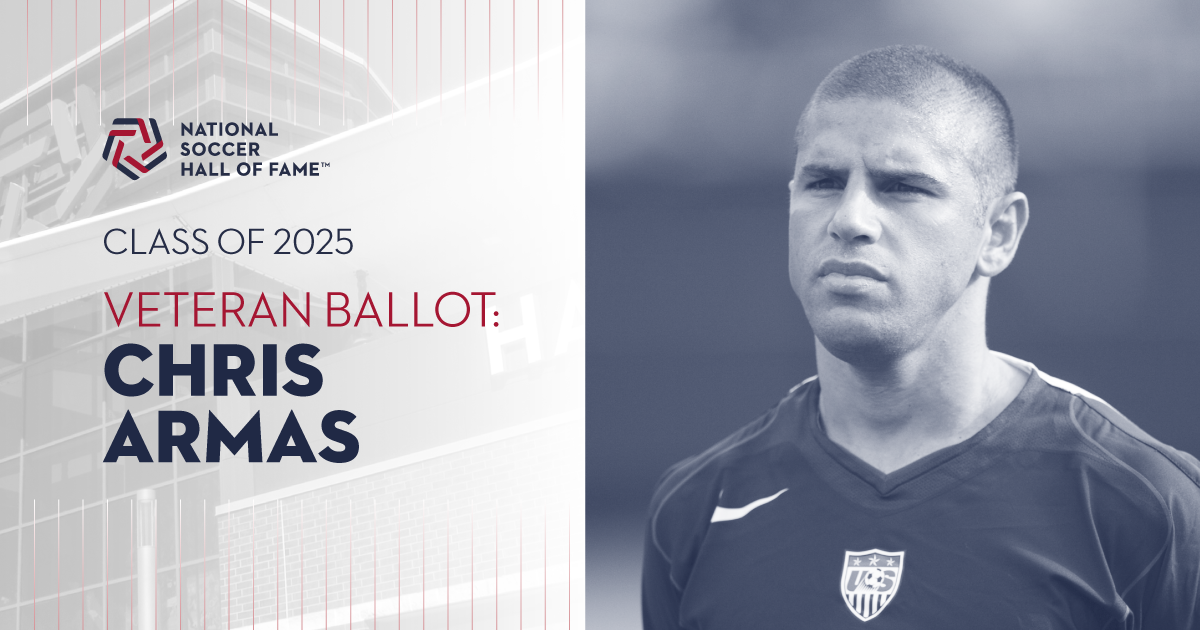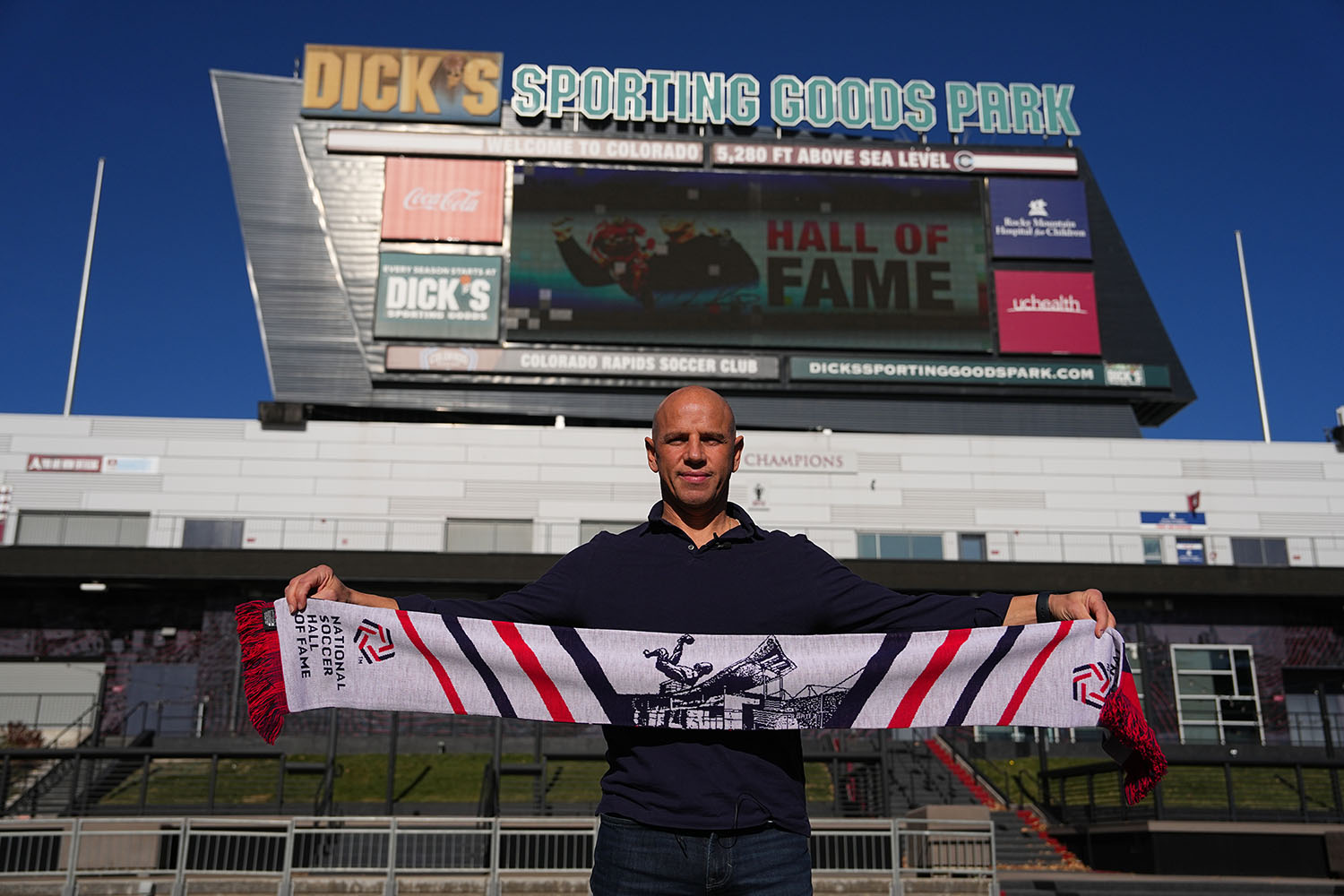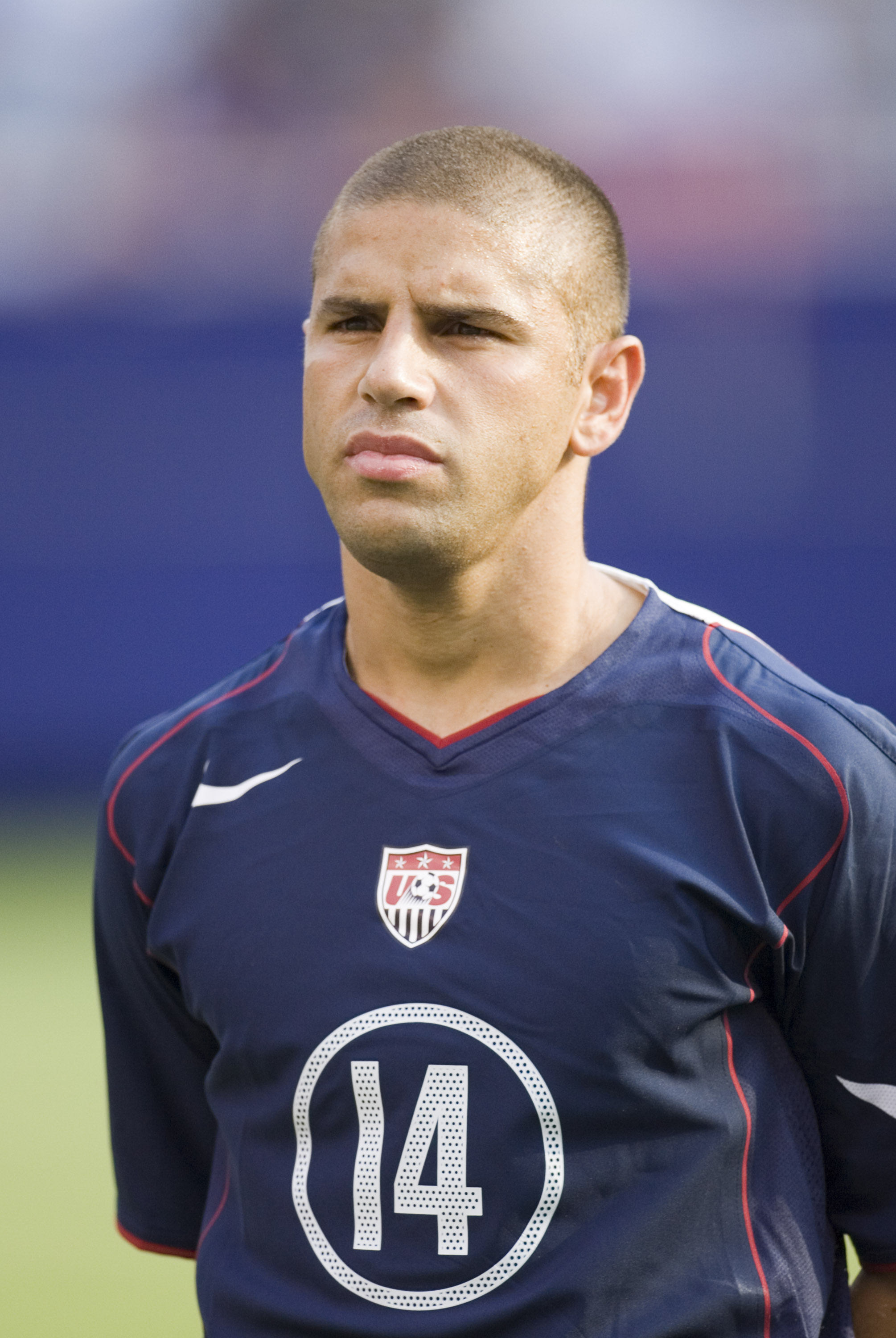Chris Armas Elected to National Soccer Hall of Fame

There is a good chance that Chris Armas isn’t on Marco Etcheverry’s Christmas card list.
“I’m probably not one of his favorite players,” he said in 1998.
That probably went for Preki, Mauricio Cienfuegos and Carlos Valderrama as well.
During Major League Soccer’s early years, Armas made life difficult — and sometimes downright miserable — for the league’s top playmakers.
In a career-defining 1998 season, the defensive midfielder held those legends to only two goals and four assists over 15 games. To appreciate how dangerous that quartet was that season, they collected a combined 35 goals and 60 assists in 100 appearances.
“Each one of them had something extremely special they brought to the table,” Armas told MLSnet.com in 2005. “The frustrating thing is, over 90 minutes they’re making plays. You try to make it uneventful as much as possible. You try to make them play sideways and backwards.
“I always took pride. The other guys realized how much respect I had for them. They brought out the best in me.”
Armas helped define the role of defensive midfielder, setting a high bar for future generations. He was a vital factor in the Chicago Fire winning an MLS Cup, a Supporters' Shield, and four Lamar Hunt U.S. Open Cup titles. He was named to the MLS Best XI five times.
The 5-foot-7, 150-pound dynamo also represented the U.S. Men’s National Team 66 times, scoring twice, and earned the 2000 U.S. Soccer Male Athlete of the Year.
On May 3, 2025, in Frisco, Texas, Armas will receive the ultimate honor as he will be inducted into the National Soccer Hall of Fame. He was elected from the Veteran Ballot.

In 2018, Armas was asked about the Hall of Fame: “I never played the game for that recognition. I played the game to win, to be part of good teams and to empty my tank every single day. I did that in my career. I was part of good teams, winning teams. I did a lot with what I had. That was my reward.
“The accolades, it would be a great honor, but it’s out of my control at this point.”
None of Armas’ coaches and teammates needed to be reminded of what he brought to their teams.
“We called him Dunga because he played like Dunga of Brazil,” former Long Island Rough Riders general manager Jim Kilmeade said when Armas was inducted into that club’s Hall of Fame in 2005. “The bottom line is this: He was the quintessential Rough Rider. He set a standard that defined his position.”
Veteran head coach Bob Bradley acquired Armas along with Mexico international goalkeeper Jorge Campos from the LA Galaxy in exchange for Kevin Hartman and Danny Peña before the Chicago Fire’s inaugural campaign in 1998.
“First and foremost, Chris is a great person,” Bradley said. “I think anybody who has had the opportunity to be around him has tremendous respect for the way he goes about things, the way he treats people. He just plays and acts the right way all the time. That’s an incredible thing.
“He always will be one of the players that I’ve enjoyed being around and working with.”
Bob Montgomery coached Armas on his Under-12 team in the Long Island Junior Soccer League and at Adelphi University.
“Chris is what I call a natural,” he told BigAppleSoccer.com. “He was special from the beginning. The things that he does are recognized tremendously by his teammates.”
Indeed, they were.
“I always say, ‘I wish I could be like him. I wish I had the drive that he has,’” Fire teammate C.J. Brown told the Associated Press in 2003. “I have that drive for the sport, but for some reason, he has that extra edge.”

Born in New York City on Aug. 27, 1972, Armas grew up as a soccer-crazy kid in Brentwood, N.Y. When he wasn't playing outdoors, he kicked an orange ball around his house.
“Each end of the hallway was a goal,” he told Newsday in 1999. “I scored most of my career goals on my brother.”
Some players are born defensive midfielders. Some are made. Armas was a combination of both.
“Armas was a hard worker, a tireless worker,” said former Rough Riders coach Alfonso Mondelo, the MLS director of competition. “He was a player who had a knack of being at the right place at the right time. I was impressed with how much of the field he covered. Chris made other guys look good.
“He didn't make mistakes while covering up for others. He has an innate ability to adapt very quickly to whatever situation he is in.”
Armas became a tough-as-nails defensive midfielder, starring for St. Anthony’s High School and Adelphi, where he earned All-American honors, before turning pro with the Rough Riders. He set up the winning goal in the 1995 U.S. Interregional Soccer League final in the 2-1 win over the Minnesota Thunder.
In the inaugural season of MLS in 1996, Armas played an important role for the LA Galaxy, which reached the MLS Cup Final. He scored, helping LA to a 2-0 lead before D.C. United rallied for a 3-2 extra-time win.
Armas’ philosophy was simple and direct: Keep it tight.
“You watch these players around the world, like [Zinedine] Zidane,” he said in a 2005 interview with MLSnet.com. “You look at the space they get and the respect they get. I don't agree with it. I always thought you have to make the guy earn it, even if they beat you. I don't think you should let a guy like that with time and with space. You have to try to give yourself more time and give them less time. In any sport, time is the thing. If you give them time, they can take out guys, they can hurt you.
“In reality, who wants someone in your face all the time, someone is trying to disrupt you? Not in a dirty way. You do take some professional fouls. You take a foul here and there to let a guy know that it’s part of the game.”
Armas’ tenacious play led to an opportunity to play for the USMNT, although his journey took a controversial path.

Despite being an outstanding player at various levels, he initially fell through the cracks of the U.S. system. Armas joined the Puerto Rico national side in 1993 due to family ties to the U.S. territory. FIFA eventually resolved the issue, saying that Armas participated in the Shell Caribbean Cup, which was not an official competition.
“When I made a decision to play for Puerto Rico, I thought that this might be the only chance I might get to play internationally,” Armas told U.S. Soccer. “Because of the system, I wasn’t getting seen at all. Bob Montgomery had been pushing for me, but people were saying, ‘Chris doesn’t have enough experience. We’re looking for guys who have a little more experience.’ Well, how do you get that experience? That’s what helped me make my decision.
“At the time, I felt a little bit helpless. But I’m lucky that the federation did what they did to clear me.”
On Nov. 6, 1998, Armas made his international debut in Bruce Arena's first game as USMNT head coach, a scoreless draw with Australia in San Jose, Calif.
It took little time for him to become an essential part of the U.S. midfield, and he would go on to appear in 14 of 16 World Cup qualifiers during the 2002 cycle, second-highest on the USMNT.
Named to the squad for Korea/Japan, Armas tore his ACL during the team’s first sendoff match again Uruguay, just three weeks before the World Cup opener. Having already missed out on the 2000 Olympics because of a knee injury, Armas was unavailable for Korea/Japan. He later would miss out four years later in Germany, again due to a knee injury.
After tearing his ACL before the 2002 tournament, Armas sustained a staph infection a month after surgery.
“Him missing the World Cup became minor compared to what he was dealing with,” his wife Justine told the AP. “I don’t think I realize how severe his sickness is, that it actually could have been life-threatening.”
It was a difficult time.
“I was truly scared,” Armas told the AP. “You go through, ‘Why is it happening?’ You ask God, ‘What's the plan here?’ I don't know. … I know I learned a lot about myself, my family, who I can really count on.”
In a 12-year MLS career, Armas recorded 12 goals and 48 assists in 264 matches, stopping endless attacking sequences by the opposition before retiring in 2007.
Armas entered the coaching ranks. He was a Fire assistant (2008), directed the Adelphi women's team (2011-2015) and joined the New York Red Bulls as an assistant coach (2015-2018). When Jesse Marsch departed for RB Leipzig in 2018, Armas took the reins, leading the team to the Supporters' Shield. After he was fired in 2020, Armas went on to coach with Toronto FC (2021), as an assistant with Manchester United (2021-2022), and as an assistant and then co-interim head coach at Leeds United (2023).
While waiting for his next gig, Armas guided the N.Y. Hota/Bavarians Under-23 team in the Long Island Soccer Football’s Ryder-Vass tournament in 2023. He had the unique opportunity of coaching his sons — Chris, now 22, and Alexi, now 19.
“When they were 12 years old, it’s not always easy when you give information because I’m still the dad giving it,” Armas told FrontRowSoccer.com. “I’m very proactive and mindful of how much I say, how long I talk in those moments and just try to get in and out with my comments, just to get them to think about certain things. Now as young adults, it’s nice having real soccer conversations with them.”
Armas was named head coach of the Colorado Rapids on Nov. 17, 2023.
“The club, the fanbase — they’re hungry for something more right now, and I felt like it’s a perfect fit if I can be the one to lead the charge,” he said on X, formerly Twitter.
It has been a good fit. Armas led the Rapids (15W-14L-5D) to a seventh-place finish in the MLS Western Conference and to the team’s first playoff appearance since 2021.
The 2025 schedule hasn't been released yet, but if Colorado plays on May 3, Armas may need to skip it because he will be honored as one of the nation’s finest at the National Soccer Hall of Fame in Frisco, Texas.
